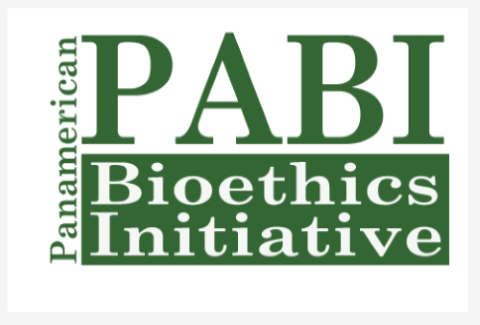 The Pan American Bioethics Initiative (PABI) was the name of the UM Ethics Programs grant (R25TW008186) from the Fogarty International Center of the U.S. National Institutes of Health. The project began in 2008 and concluded in 2014. Principal Investigators were Drs. Kenneth W. Goodman and Paul Braunschweiger; Dr. Sergio Litewka was the Project Director. The grant was one of a suite of Fogarty International Research Ethics Education And Curriculum Development Awards.
The Pan American Bioethics Initiative (PABI) was the name of the UM Ethics Programs grant (R25TW008186) from the Fogarty International Center of the U.S. National Institutes of Health. The project began in 2008 and concluded in 2014. Principal Investigators were Drs. Kenneth W. Goodman and Paul Braunschweiger; Dr. Sergio Litewka was the Project Director. The grant was one of a suite of Fogarty International Research Ethics Education And Curriculum Development Awards.
The PABI grant aimed to challenge and enable Fellows from Latin American and Caribbean research organizations to foster clinical research integrity and responsible conduct of research at their institutions. Fellows were decision makers and policy architects who have practical responsibilities for the development and/or oversight of research ethics programs at their respective institutions.
The PABI approach was to build research integrity and research ethics capacity in Latin America and the Caribbean. It emphasized a “top-down” approach in which decision makers involved in research ethics regulations and policy development are challenged to develop a robust ethics program. The expectation was that by agreeing to participate in PABI, the Fellows would use the collective expertise and resources of the University of Miami and its partners to develop robust research ethic programs.
A collegial relationship between PABI Developers and Faculty maximized networking and mentoring opportunities for Fellows. In addition to seminars and in-country capacity building workshops, the CITI Program was provided as a tool for bioethics education for faculty, staff and students at participating organizations. The CITI Program offers Web-based education in human subject protection, good clinical practice (GCP), lab animal welfare and research integrity to more than 825 institutions in the U.S. and around the world.
The CITI Program has been implemented around the Hemisphere. It has Spanish and Portuguese libraries of nearly 60 modules.
Mission Statement
The overarching goal of this project is to stimulate institutional efforts to foster human subjects protection, research integrity and the responsible conduct of research by challenging and working with decision leaders and policy architects who have practical responsibility for the development and/or oversight of research ethics programs in Latin American and the Caribbean.
Faculty
PABI Faculty provided expert presentations at annual meetings and workshops. In addition, non-U.S. Faculty provided their perspectives on their respective countries’ needs and their experiences regarding the implementation of bioethics programs at their institutions. Faculty members help PABI leadership assess the success of the Fellows as they progress to meet the challenge of implementing or enhancing their programs. Faculty members also were intended to provide practical guidance as mentors to Fellows.
Fellows
The PABI Fellows design and implement bioethics programs for investigators conducting biomedical and behavioral research at their organizations. With the support of the PABI faculty, the Fellows and colleagues at their institution will develop local content modules describing country-specific regulations for conducting human subjects research, privacy and confidentiality and genetics research. Together with PABI program directors and faculty, the Fellows organize on-site PABI workshops. The Fellows attend the PABI meetings, provide progress reports and evaluate the new bioethics programs created under their leadership.
External Advisory Board
The External Advisory Board (EAB) assessed the program and advised PABI leadership regarding the strategies and approaches used to meet the specific aims of the project. The EAB was consulted for advice and counsel when difficult problems arised during the project. For example, a Fellow may fail to make significant progress toward the implementation of a bioethics program or to enhance an existing program. The EAB could intervene either to help the Fellow make progress or by finding another person to fill the Fellow’s role. Another way in which the EAB could help is by critiquing new, untested strategies before they are implemented. Thus, important decisions regarding the conduct of the project could be made with advice gleaned from the EAB. Dr.Fernando Lolas of the University of Chile chaired the EAB.



 The Pan American Bioethics Initiative (PABI) was the name of the UM Ethics Programs grant (R25TW008186) from the
The Pan American Bioethics Initiative (PABI) was the name of the UM Ethics Programs grant (R25TW008186) from the